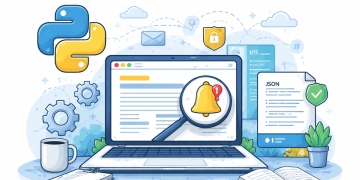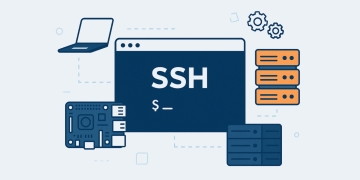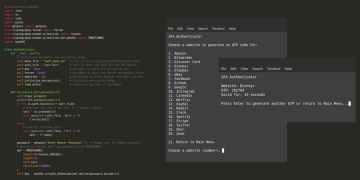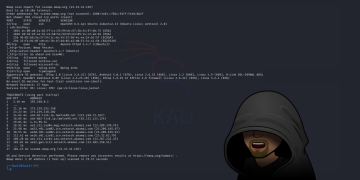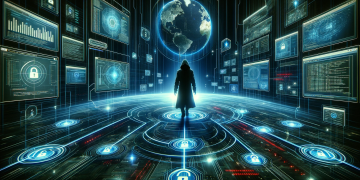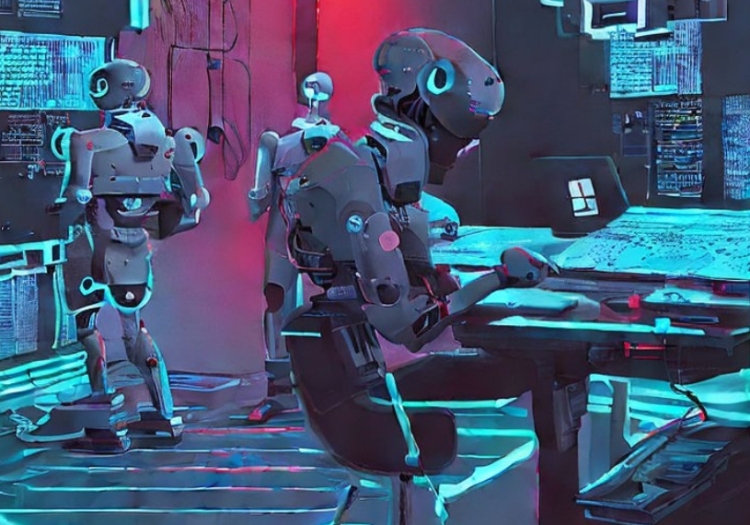In recent years, there has been a lot of speculation about the role of artificial intelligence (AI) in software development. Some people believe that AI has the potential to replace human coders entirely, while others argue that AI-generated code is not as effective or efficient as code written by humans. As the development of AI continues to advance, it is essential to understand the capabilities and limitations of AI-generated code and how they may impact the future of software development.
AI-generated code refers to code that is generated by AI without human intervention. This can include everything from simple scripts to more complex programs and applications. The use of AI-generated code has become increasingly prevalent in recent years, with companies like Microsoft and Google developing AI-powered tools for software development.
While AI-generated code has the potential to save time and improve code quality, it also raises some important questions about the future of software development. Will AI eventually replace human coders entirely? What are the ethical considerations for using AI-generated code? And what impact will AI have on the job market for software developers?
In this article, we will explore these questions in detail and provide an overview of the current state of AI-generated code. We will also discuss the different types of AI that are capable of writing code and the limitations of AI-generated code compared to code written by humans. Finally, we will examine the ethical considerations of using AI-generated code and how it may impact the job market for software developers. By the end of this article, you will have a better understanding of the potential of AI and its impact on the future of software development.
The Current State of AI in Software Development
Artificial intelligence is already playing a significant role in software development, and its use is becoming more prevalent. AI-powered tools are being developed to automate repetitive and time-consuming tasks, allowing developers to focus on more creative and challenging work. AI is being used to identify and fix bugs in code, improve the quality of software testing, and even generate code automatically.
One area where AI is having a significant impact on software development is code optimization. AI can analyze large amounts of code and identify areas that can be optimized, such as code that is redundant or inefficient. This can help improve the performance of software and make it run faster and more efficiently.
Another area where AI is being used in software development is natural language processing (NLP). NLP is a branch of AI that deals with the interaction between humans and computers using natural language. NLP algorithms can be used to analyze written and spoken language, allowing developers to create chatbots, virtual assistants, and other natural language interfaces.
Machine learning is another area of AI that is becoming more prevalent in software development. Machine learning algorithms can be used to analyze data and identify patterns, allowing developers to create predictive models that can be used to make decisions or automate tasks.
Despite the benefits of AI in software development, there are also some limitations. For example, AI can lack the creativity and flexibility of code written by humans. AI can only generate code based on the data and patterns that they have been trained on, and they cannot replicate the intuition and problem-solving skills of human developers.
AI can have issues with maintainability and scalability. Because these algorithms generate code automatically, it can be difficult to understand how the code works, which can make it challenging to maintain or modify in the future. This can be a particular issue for complex software applications.
Artificial intelligence is already playing a significant role in software development, and its use is becoming more prevalent. AI-powered tools can automate repetitive tasks, optimize code, and even generate code automatically. However, there are also limitations to AI-generated code, such as a lack of creativity and flexibility and issues with maintainability and scalability.
The Different Types of AI That Can Write Code
There are three types of AI that can write code: rule-based systems, genetic programming, and deep learning systems.
Rule-based systems use a set of predefined rules to generate code automatically. These systems are limited in their ability to write complex code and require human intervention to create the initial set of rules.
Genetic programming is a machine learning technique that involves evolving a population of computer programs over time. The technique is inspired by the processes of natural selection and genetic inheritance. The programs that perform better are selected to “breed” the next generation of programs. Genetic programming can generate code that is more sophisticated than rule-based systems, but it still has limitations in terms of creating complex code.
Deep learning systems use neural networks to learn from examples and generate code. These systems are the most advanced and can generate code that is more complex than rule-based and genetic programming systems. However, deep learning systems require a vast amount of data to learn from and can be challenging to develop.
The Advantages of AI-Generated Code
There are several advantages to AI that make it an attractive option for software development. One significant advantage is speed. AI can generate code much faster than human developers, and they can do so without requiring breaks or sleep. This can be particularly useful for organizations that need to develop software quickly or for projects with tight deadlines.
Another advantage of AI is the potential for increased accuracy and consistency. AI can be trained to generate code that meets specific requirements and standards, ensuring that the code is consistent and error-free. This can help improve the overall quality of software development and reduce the risk of bugs or errors.
AI can also be optimized for specific use cases or hardware configurations. For example, AI can generate code that is specifically designed to run on a particular type of hardware, such as a smartphone or a server. This can help improve performance and efficiency, as the code is optimized for the specific hardware it will be running on.
AI can be used to automate repetitive tasks, allowing developers to focus on more challenging and creative work. This can help reduce developer burnout and improve job satisfaction, as developers are able to work on more engaging and intellectually stimulating tasks.
AI can potentially reduce the cost of software development. Because AI can generate code automatically, organizations may be able to save on development costs by reducing the number of developers required for a project or by reducing the amount of time developers spend on repetitive tasks. This can be particularly useful for small businesses or startups that have limited resources.
AI offers several advantages over code written by humans, including speed, accuracy, consistency, optimization for specific use cases or hardware configurations, automation of repetitive tasks, and potentially lower development costs. These advantages make AI-generated code an attractive option for software development. However, there are also limitations and ethical considerations to consider when using AI-generated code.
The Limitations of AI-Generated Code
While AI offers several advantages, there are also several limitations and ethical considerations to consider. One significant limitation is the lack of creativity and flexibility in AI. AI can only generate code based on the data and patterns they have been trained on, and they cannot replicate the intuition and problem-solving skills of human developers. This can result in code that lacks the nuance and complexity of code written by humans.
AI-generated code can be difficult to understand, modify, or maintain. This is because AI generates code automatically without providing insight into how the code works. This can make it challenging to identify and fix bugs, add new features, or make modifications to the code in the future. As software applications become more complex, this limitation becomes more significant.
Another limitation of AI is the potential for bias. AI can reflect the biases and assumptions of their creators or the data they were trained on. This can result in code that perpetuates stereotypes or reinforces existing biases. For example, AI that is trained on historical data may produce code that reflects gender or racial biases. This can result in software applications that perpetuate discrimination or inequality.
AI can lack context or understanding of the broader implications of the code. For example, AI may not understand the ethical or social implications of the software they are generating code for. This can result in software applications that are technically accurate but socially or ethically problematic.
There is a risk that the code may replace human developers, which could have significant implications for the future of work. While it can automate repetitive tasks and free up developers to focus on more creative work, it could also lead to the displacement of human workers. This could result in job losses and increased economic inequality.
While AI offers several advantages, there are also significant limitations and ethical considerations to consider. These limitations include the lack of creativity and flexibility of algorithms, the difficulty in understanding and maintaining the code, the potential for bias, the lack of context and understanding of broader implications, and the potential displacement of human workers. As AI becomes more prevalent in software development, it is essential to consider these limitations.
The Future of AI in Software Development
The future of AI in software development is both exciting and uncertain. AI has already demonstrated significant potential for generating code, automating repetitive tasks, and optimizing software applications. As AI technology continues to advance, we can expect to see even more advanced applications of AI in software development.
One potential area for growth is the use of AI in software testing and debugging. AI can be trained to identify and fix bugs automatically, reducing the time and resources required for manual testing and debugging. This could help improve the overall quality of software development and reduce the risk of errors and security vulnerabilities.
Another potential area for growth is the use of AI in software project management. AI can analyze data on software development projects, such as project timelines, budget constraints, and team performance, to help project managers make more informed decisions. This could help improve the efficiency and effectiveness of software development projects and reduce the risk of delays or cost overruns.
AI can be used to enhance collaboration between human developers. For example, AI can provide real-time feedback on code quality, help identify potential issues or conflicts, and suggest solutions or alternative approaches. This could help improve the overall quality of software development and facilitate more effective collaboration between developers.
As AI becomes more prevalent in software development, it is also important to consider the ethical implications of AI-generated code. As discussed in the previous section, AI-generated code can perpetuate biases, lack context and understanding of broader implications, and potentially displace human workers. It is important for developers, policymakers, and other stakeholders to work together to ensure that AI is used responsibly and ethically in software development.
The future of AI in software development is both exciting and uncertain. While AI has already demonstrated significant potential in generating code, automating repetitive tasks, and optimizing software applications, there is still much to be explored and developed. As AI technology continues to advance, it is important to consider the ethical implications of AI-generated code and to work together to ensure that AI is used responsibly and ethically in software development.
The Impact of AI on the Job Market
One of the key concerns about the rise of AI is its potential impact on the job market for software developers. While AI has the potential to automate repetitive tasks and streamline software development, it also has the potential to displace human workers who have traditionally performed those tasks.
In particular, AI is most effective at automating simple, repetitive tasks such as generating boilerplate code or conducting basic testing. This means that entry-level programming jobs may be at the greatest risk of being replaced by AI. However, more complex programming tasks that require creative problem-solving and critical thinking are less likely to be fully automated by AI.
It’s important to note that while AI may displace some jobs in software development, it may also create new opportunities in areas such as AI development, data analysis, and machine learning. As AI technology continues to evolve, there will be a growing demand for skilled workers who can design, develop, and implement AI and applications.
To ensure that the benefits of using AI are shared fairly and equitably, it is essential for policymakers and business leaders to invest in education and training programs that prepare workers for the jobs of the future. This includes programs that provide workers with the skills and knowledge necessary to work alongside AI and applications, as well as programs that promote the development of new AI technologies and applications.
Ultimately, the impact of AI on the job market for software developers will depend on a variety of factors, including the pace of technological change, the availability of education and training programs, and the policies and regulations put in place to govern the development and use of AI technology. By taking a proactive and collaborative approach to these challenges, we can ensure that the rise of AI is a force for good in the world of software development, creating new opportunities for workers and driving innovation and progress in the field.
Conclusion
In conclusion, AI is rapidly becoming a reality in software development. AI is capable of generating code automatically, automating repetitive tasks, and optimizing software applications. While there are clear advantages to AI, such as increased efficiency and productivity, there are also limitations and ethical considerations that must be taken into account.
As discussed in this article, AI can perpetuate biases, lack context and understanding of broader implications, and potentially displace human workers. It is important for developers, policymakers, and other stakeholders to work together to ensure that AI is used responsibly and ethically in software development.
Despite these challenges, the potential for AI in software development is vast. As AI technology continues to advance, we can expect to see even more advanced applications of AI in software development, such as the use of AI in software testing and debugging, software project management, and collaboration between human developers.
The key to realizing the potential of AI is to strike a balance between the advantages and limitations of AI and to ensure that this technology is used in a responsible and ethical way. By working together to address the ethical considerations of AI and to promote its responsible use, we can unlock the full potential of AI to drive innovation, improve software development, and benefit society as a whole.




